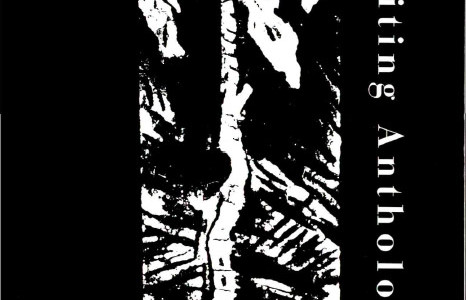
How to Become Spiritually Impaired
By Kyle Beermann '95
British Literature 1660-1850
Writing Objective: Write an original critical essay on one of Wordsworth’s romantic odes.
During the early to mid-1800s, there were several writers who held the belief that the human soul is part of a larger macrocosm. In connection with this, some also believed that mankind has knowledge of this deeper existence when we are children, but as our minds become clouded with the materialistic world, we lose touch with the truth of our nature. Two of these writers were William Wordsworth and Matthew Arnold. In “Intimations of Immortality” and The Forsaken Merman” these poets each deal with this subject in their own way. Wordsworth’s “Intimations” begins with the narrator in melancholy reflection. He remembers a time when “every common sight..did seem apparelled in celestial light” but he now realizes that “the things which I have seen I now can see no more.”
Wordsworth goes on to describe birth as “asleep and a forgetting,” with the soul coming “from afar: not in entire forgetfulness.” This implies that, contrary to the modern belief that we are born empty and gain knowledge through experience, we are born with knowledge of our place in the universe. Wordsworth is worried because the more he lives, the further he becomes removed from the ability to feel his connections to nature. In life he finds no solution to the problem, but he does experience “soothing thoughts” through a “primal sympathy” for his past One can never return to the untainted viewpoint of youth, but it is possible to regain some innocent insight by drawing upon memories from our past and the feelings which they provide. In this way, it is possible to live in the material world while still maintaining contact with a more spiritual existence.
In “Intimations” it is easy for the reader to identify with the author because of the viewpoint which Wordsworth uses. In the poem, the first person narrator seems to be alone in nature and thinking out loud about his place in the world. The tendency to seek solitude and contemplate our place in life seems a universal behavior for mankind.
Matthew Arnold’s The Forsaken Merman” also deals with the topic of forgetting certain types of knowledge as a result of being exposed to the material world; however, Arnold approaches his subject from a much different angle. The poem Is a story told by a fantastic narrator, and delivered in a lyrical rhyme scheme and meter. The speaker is evidently one of the ” kings of the sea” and is lamenting the loss of a friend. The friend, Margaret, left the fanciful sea kingdom, and returned to the realm of men in order to observe the Easter celebration. Margaret becomes drawn In by the things of the material world, and never returns to the sea, leaving the merpeople alone and sad.
The real problem in this poem is religion. As a youth, Margaret was able to enjoy life with the merpeople, but when she suddenly realizes that there is a “holy’ celebration in the real world she says: “Twill be Eastertime in the real world- ah me! And I lose my poor soul. Merman! here with thee.” This is the first point in the poem where the girl seems to doubt her present lifestyle. After she leaves and fails to return, the merpeople seek her out but she is in the church, and can so longer hear their voices because “her eyes were sealed to the holy book.” In this, Arnold makes a strong statement about religion. Margaret was a happy girl, living in touch with the natural world (represented by the merpeople), but the material world demands that the natural world is evil and must be abandoned. As a result of this belief, we see Margaret as a growing woman, working in the material world, ironically singing “O joy. O joy,” while leading a very hollow life.
Though the poems take different shapes, Wordsworth and Arnold deal with the same basic idea people grow further removed from nature by becoming more involved in the material world. Both poets use images of natural beauty to represent the more spiritual side of human life, and both show nature as a way to regain some of the knowledge which is forsaken during the transition into the material world. Both use the sea to represent immortality which transcends the material world, and although Arnold blames religion for the alienation of nature, both still hold God as part of nature.
Wordsworth deals with the subject on a much deeper philosophical level, searching his mind for answers, and likewise allowing the blame for the loss to fall upon himself. Arnold seems to blame society, and mainly religion, for forcing people away from their awareness of nature. However, Arnold’s poetry reads with less difficulty, and is much easier to understand, thus making his ideas accessible to more people. In this way, “Merman” is almost like a Cliffs Notes to “Intimations.”
One final point that both authors seem to agree on is that communion with nature causes us to reflect upon our own nature. In “Merman,” Margaret will sometimes be drawn to her window during a storm, and think back on her freedom as a child. In “Intimations,” the whole poem is spent in nature, remembering past freedoms. Neither author seems to believe that the innocent wisdom of children can be fully regained after the material world has deluded us, but through memory and contemplation, we may still enjoy some of our deeper existence.